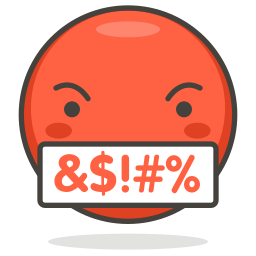On Monday 20th of January, the European Commission integrated a revised code of conduct on tackling illegal hate speech online into the Digital Services Act (DSA), taking a bold step towards regulating online content. The updated Code of Conduct, known as 'Code of conduct+', builds on a 2016 version and aims to effectively address illegal hate speech across online platforms. Twelve major digital platforms have signed the agreement, including Facebook, Instagram, YouTube, TikTok, X (formerly Twitter), LinkedIn, and Snapchat.
Among other things, the signatories will allow a network of 'monitoring reporters', made up of non-profit or public bodies, to monitor how they police hate speech on their platforms; make 'best efforts' to review at least two-thirds of hate speech reports received from reporters within 24 hours; work with experts to identify trends and developments in hate speech; and raise awareness of illegal hate speech on their platforms.
Key aspects of the new framework include:
Providing detailed reporting on hate speech measures
Offering country-level data broken down by hate speech categories
Tracking the reach of illegal content before removal
Examining the role of recommendation systems in content spread
“In Europe there is no place for illegal hate, either offline or online,” said EC vice-president Henna Virkkunen: “I welcome the stakeholders’ commitment to a strengthened Code of conduct under the Digital Services Act. Cooperation among all parties involved is the way forward to ensure a safe digital space for all.”

The Code of Conduct+, requires platforms to provide detailed insights into how hate speech spreads across their networks. It's no longer enough to simply remove offensive content; platforms must now explain how such content gains traction in the first place. For platforms designated as Very Large Online Platforms (VLOPs), adherence to the code may be considered an appropriate risk mitigation measure.
“Hatred and polarization are threats to EU values and fundamental rights and undermine the stability of our democracies,” said Michael McGrath, Commissioner for Democracy and Consumer Protection: “The internet is amplifying the negative effects of hate speech. I intend to work tirelessly to counter hate speech and hate crime in the EU.”
“The Code of conduct+ will strengthen the way online platforms deal with content that EU and national laws define as illegal hate speech” said the Commission in a statement on Monday 20th of January. “The integrated Code of Conduct will facilitate compliance with and the effective enforcement of the DSA when it comes to risks of dissemination of illegal content on their services”.
But the controversy between the GAFAM and Europe on speech online continues
According to an internal letter published across different Media such as AXIOS, Google has informed the European Commission that it will not implement proposed fact-checking measures against disinformation for its search and video platforms.
According to the 2022 Code of Practice on Disinformation, a voluntary framework that brought together various organizations, including tech platforms, advertisers, and researchers, Google and 34 signatories commit to common guidelines for managing digital content.
These include efforts to reduce financial incentives for spreading misinformation, increase transparency in political advertising, and provide better tools for users and researchers. A Transparency Centre was established to help track the progress of these efforts, and a Task Force was created to keep the guidelines up to date with changing technologies and social trends.
In a letter to Renate Nikolay, at the Directorate-General for Communications Networks, Content, and Technology of the European Commission, Kent Walker, the company's global affairs president, wrote that the suggested fact-checking requirements do not align with their current approach to content management. The letter indicates that Google believes its existing methods are sufficient for handling online information.
According to different report in the Media, the company will continue using its existing tools, such as watermarks, AI disclosures, and a community feature that allows users to add context to videos. The company says that its current content moderation strategies are effective, particularly during recent global election periods. X had already been removed from the Disinformation Code by Elon Musk in 2023.

Meta takes a step back
In the latest manoeuvre, and an interview with Bloomberg, Meta's head of global business Nicola Mendelsohn said that the company is going to keep things as they are for now outside the USA, but that this might change in the future. “We'll see how that goes as we move it out over the year”. She confirmed that they are still working with fact-checkers around the world.
Reporters Without Borders and the European Federation of Journalists have formally challenged Meta's planned withdrawal from fact-checking programs, sending a direct appeal to European Commission President Ursula von der Leyen.
“Mark Zuckerberg’s recent announcement — which follows in the footsteps of Elon Musk — is a crusade against journalism. His vision of freedom of expression is the opposite of journalism: giving everyone the right to say whatever they want with no regard for the facts” writes Thibaut Bruttin, RSF's Director General. “Facing the current proliferation of foreign interference and manipulation of information that targets democracies, the European Union must not be afraid to enforce its rules on powerful online platforms. The DSA [Digital Services Act] must be enforced, and democratic rules must prevail” he concludes.
Meta's CEO Mark Zuckerberg recently announced that fact-checking would be removed from his platforms in the US. He also said that Europe has “an ever-increasing number of laws that censor content”.
Photo by Kristina Alexanderson via eunews/CC BY-SA 4.0 DEED










